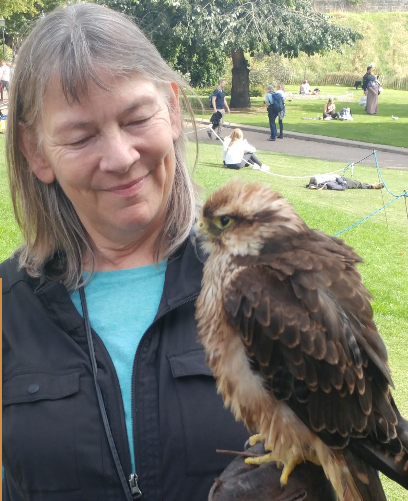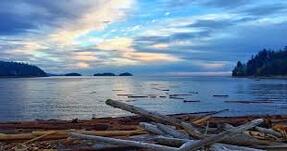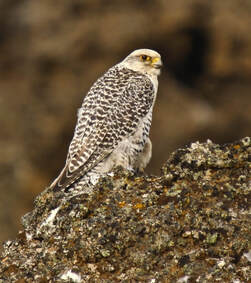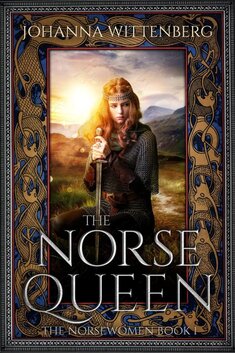You are someone who knows how to finish things as you recently completed your first book. What lessons have you learned on your creative journey that might help those who are constantly starting stories but never seeing them through to the end? Great question! First, the story must have legs. It must compel and fascinate me enough to obsess you for months, if not years. My debut novel, The Norse Queen, took six years to write. I was working full time and commuted to work on the backroads so I could work on the story in my head. When I pulled into the parking lot or my driveway, I would scribble everything I’d come up with on the drive. I know, a tape recorder would have been better, but it didn’t work for me. I adore the research, poring over books about the Vikings, trying to translate texts from Norwegian. I went to Norway twice, and dogged the steps of archeologists. So, obsession helps, but maturity is also important. I tried to become a novelist in my twenties, and actually forced myself to finish a literary novel that made me so miserable I gave up writing for years. I wanted to have adventures, not sit in front of a computer, so I chucked that miserable novel in the sock drawer and went to sea. Years later, I had calmed down a bit and was ready to dive down the rabbit hole. "So, obsession helps, but maturity is also important. I tried to become a novelist in my twenties, and actually forced myself to finish a literary novel that made me so miserable I gave up writing for years." You and I share two particular things in common: an interest in writing stories about Vikings and the area of the world we live in, specifically the Pacific Northwest! I often hear the Pacific Northwest, especially the coast, being compared to the iconic geographical features of Norway and Sweden. How has living in this part of the world influenced the world you write about in your historical fiction? I do feel like I’m in touch with Norway in the Pacific Northwest. It is very similar in many ways. I love the sea and always want to be close to it, and the fact that seagoing is still a way of life here helps a lot. Maria Headley has famously challenged the male-dominated narrative of the epic poem Beowulf, both through her award-winning book The Mere Wife and her new feminist translation of the original text. What was your process for discovering, uncovering, and filling in the gaps of Åsa’s story in your Norsewomen series? There was very little fiction from a Viking woman’s point of view, so I had to put my story on the bare bones of archeological discoveries. I read a ton of archeological books, especially Neil Price’s The Viking Way, as well as the sagas and the various annals from the time. I try to stay up-to-date on new discoveries that can have a major impact on my writing. About midway during my writing of The Norse Queen, BJ581 became big news. BJ581 is a grave in Birka, Sweden, that was uncovered by an archeologist in the mid-1800’s. The burial was a full weapons grave with two horses. The occupant was buried most likely sitting upright on a saddle. It was long considered a chieftain or war leader’s grave. In 2017 the only occupant was proven to be that of a woman! "I try to stay up-to-date on new discoveries that can have a major impact on my writing. About midway during my writing of The Norse Queen, BJ581 became big news." You have a really interesting background knowledge concerning the handling of raptors (falcons, eagles, etc). How important were raptors to Vikings and in what ways were they used? Were they symbolic or culturally significant in any particular ways? Viking falconry is an elusive subject. There’s not a lot of archaeological evidence—most of the harnesses, hoods, jesses, etc. were leather and didn’t survive burial or cremation graves. Bronze or copper items such as swivels and tiny bells have been found in burials, as well as some raptor bones. There are picture stones in Norway and Sweden that portray hawking scenes. The Carolingian Chronicles mention that the Danish King Godfried was murdered just as he was about to release his hawk. In Hrolf’s Saga Kraki, riders with hawks on their shoulders are mentioned. The goddess Freyja owned a falcon cloak that enabled the wearer to fly—possibly alluding to “shapeshifting” (in which the shaman’s spirit enters an animal).
"Some of the most magnificent raptors are found in Norway, and the Norse traded in falcons." Your third book is in the final stages of development and will soon be released. How did you find the process of completing your third book compared to the challenge of finishing your first one? And what have you learned along the way that might help a new writer who is stuck on their first book?
My writing method is a strange amalgamation of pantsing and plotting. I write a lot of scenes until I get stuck and then I drag out one of my writing craft books such as Story Engineering by Larry Brooks, or The Night Time Novelist by Joseph Bates, and just follow the steps until the writing begins to flow again. It works every time. I think I just run out of plot and need to go back and impose more structure. In the later stages of writing I flit all over the place, making the beginning, middle, and end work together, and at one point I was working on all 3 books at once. Like most writers, the majority of the writing I do is actually revision. Just get something down on paper so you have something to work with, then go back and work on it until it’s right. "Just get something down on paper so you have something to work with, then go back and work on it until it’s right." Will there be another book in the Norsewomen series or are you going to begin a different project following the release of the third book? Can you give us any hints or sneak peaks? I’m already working on the fourth book. Åsa ruled for 20 years and there is absolutely nothing written about those years. The tale doesn’t pick up again until her son takes over the kingdom, and she is never mentioned again. I have a lot to explore! Where can readers find your books and keep track of your latest articles and publications? My books are available on Amazon in paperback, ebook, and free on Kindle Unlimited. I also have a website, a Facebook page, and I’m active on Twitter. Find out more about Johanna's Norsewomen series on her website!
0 Comments
|
AuthorJoshua Gillingham is an author, editor, and game designer from Vancouver Island, Canada. Archives
April 2022
Categories
All
|





 RSS Feed
RSS Feed
